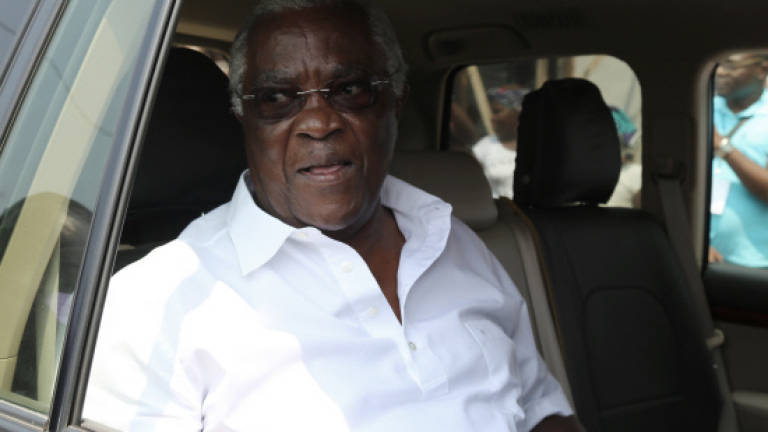Sao Tome votes in runoff boycotted by president

SÃO TOMÉ: Voters in the tiny archipelago of Sao Tome and Principe went to the polls Sunday to elect a new head of state, with just one candidate in a runoff boycotted by the incumbent president.
Held up as a regional model of democracy, the west African former Portuguese colony is mired in its worst crisis in a quarter-century of multiparty politics.
In the first round of voting on July 17, former prime minister Evaristo Carvalho, the ruling party candidate, initially seemed to have scraped past the 50% needed for an outright win.
Election officials then revised Carvalho's tally downwards to 49.8 percent and the share of 79-year-old President Manuel Pinto da Costa to 24.83%, thus prompting a runoff.
But Pinto da Costa, who had lashed the process as a fraud and demanded it be scrapped, announced he would not contest the second round.
Carvalho on Sunday called on "all residents of Sao Tome and Principe to exercise their right to vote" and confirm his first-round victory.
The 74-year-old turned up to cast his ballot at around noon at a primary school in the capital.
"I hope the electoral process is completed in calm and peaceful conditions," he told journalists, accusing Pinto da Costa of "pulling out to avoid losing the election".
But by the time the polling stations closed, it appeared that turnout among the country's 111,000 voters had been low.
Turnout on July 17 was 64.31%, in a country of barely 200,000 people.
"I came solely to perform my civic duty, but I think the way the election has played out has been scandalous. The electoral commission has made many mistakes," said farm worker Adelino Deus Lima in Trinidad.
Sociologist Olivio Diogo said he thought "abstention will be the big winner" in the vote.
Impoverished Sao Tome and Principe comprises two archipelagos located 300km off the coast of Gabon.
Executive power is shared between the president and the prime minister, a system which has led to turf wars in the past.
Carvalho, the favourite from the start, is supported by Prime Minister Patrice Trovoada, whose Independent Democratic Action party holds a majority in the national legislature.
Trovoada wants Carvalho to win the presidency to end the "cohabitation" he had with Pinto da Costa, with whom he has a family rivalry dating back to independence from Portugal.
An economist by training, Pinto da Costa became the first post-independence ruler and established a Marxist-Leninist state.
His policies devastated the economy of what had been, at the start of the 20th Century, the world's leading cocoa producer. Eighty percent of its budget now comes from foreign aid.
A clamp on the opposition sent many dissidents into exile, including Trovoada's father Manuel, after relations between the two men soured.
Manuel Trovoada returned after the country became a multiparty democracy in 1991 and was twice elected president. — AFP